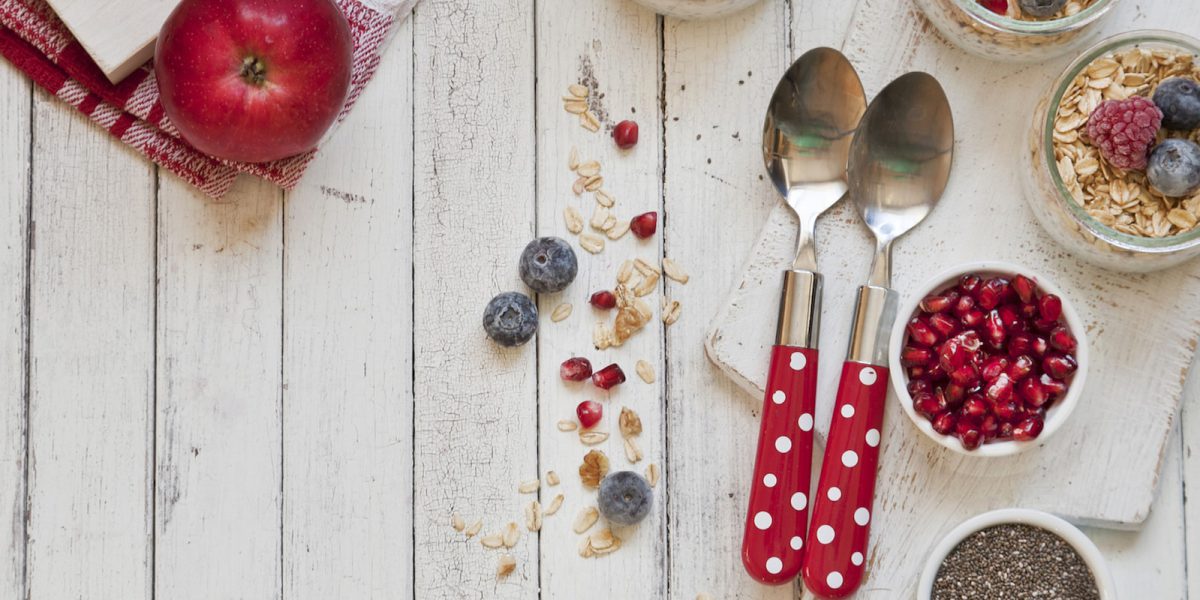Low GI diet: best evidence for improving acne

If you’re wondering what food changes you can make to help improve acne, a low Glycaemic Index (GI) diet has the strongest evidence available when it comes to diet and acne, according to a recent research review.
What’s a low GI diet?
The GI rates carbohydrate foods according to how quickly they raise the glucose level of the blood. High GI foods include foods like white bread and instant mashed potatoes while examples of low GI foods include wholegrain or multigrain bread, and porridge made with rolled oats.
Diet and acne triggers
Researchers reviewed information on specific nutrients, foods or dietary patterns that may act as triggers or be beneficial for acne, to identify evidence-based recommendations.
High-glycaemic-load diets continue to show the strongest evidence as dietary acne triggers, while randomised controlled trials have demonstrated significant improvements, decreased skin inflammation and a reduction in the size of oil glands in people with acne after low GI diets.
Brisbane dermatologist and All About Acne member, Dr Brian De’Ambrosis said many dermatologists will now recommend a low GI diet in conjunction with medical treatments to improve acne.
“For doctors, it is all about the evidence and a number of studies demonstrate the value of low GI diets,” he added.
Dairy is often raised as a potential trigger for acne but there is only a weak link between acne and dairy with further research needed.
Similarly, further research is warranted for omega-3s and probiotics and their potential benefit in acne.
Promising research findings
A randomised controlled trial with omega-3 fatty acid supplements and gammalinolenic acid supplements found clinical improvements in acne lesions, while a combination trial with the antibiotic minocycline and probiotic supplementation resulted in a lower total acne lesion count compared to the antibiotic alone.
Zinc supplementation has generated mixed results for helping to improve acne as published studies have used different zinc doses and formulations, while some studies have also included other components such as antioxidants with the zinc formulation. The authors of the study said future research focusing on zinc must account for these multiple factors.
Balance is key but don’t rely on diet alone
Dr De’Ambrosis said it was important to remember good quality carbohydrate food provided many important nutrients and should be part of a balanced diet.
“Choose less refined carbohydrate foods like wholegrain or multigrain breads and cereals, pears with the skin, raspberries, green peas, and baked beans, which are all low GI foods and high in fibre,” Dr De’Ambrosis said.
“The more fibre in a food, the more slowly it’s digested and the more slowly your blood sugar levels rise.”
Dr De’Ambrosis said more research was needed before doctors could make other dietary recommendations for acne, and in the end, diets can only do so much.
“If you notice a particular food regularly triggers an acne outbreak, then it makes sense to avoid that food. However, don’t lose heart if a healthy diet alone doesn’t improve your acne,” he said.
“Dietary changes may be partly effective for some people with acne but diet may not work for everyone. Medical treatments are still the main way to improve acne, particularly severe acne,” said Dr De’Ambrosis.
